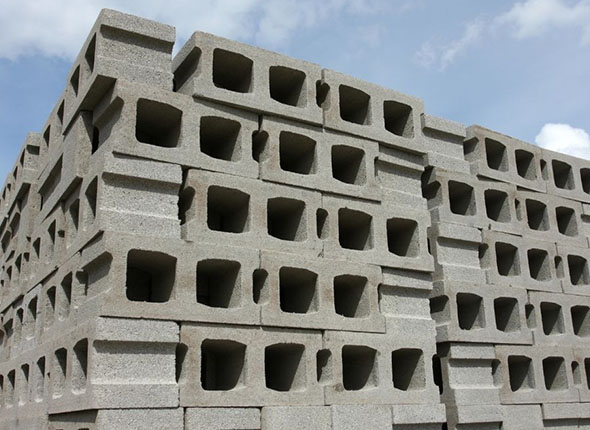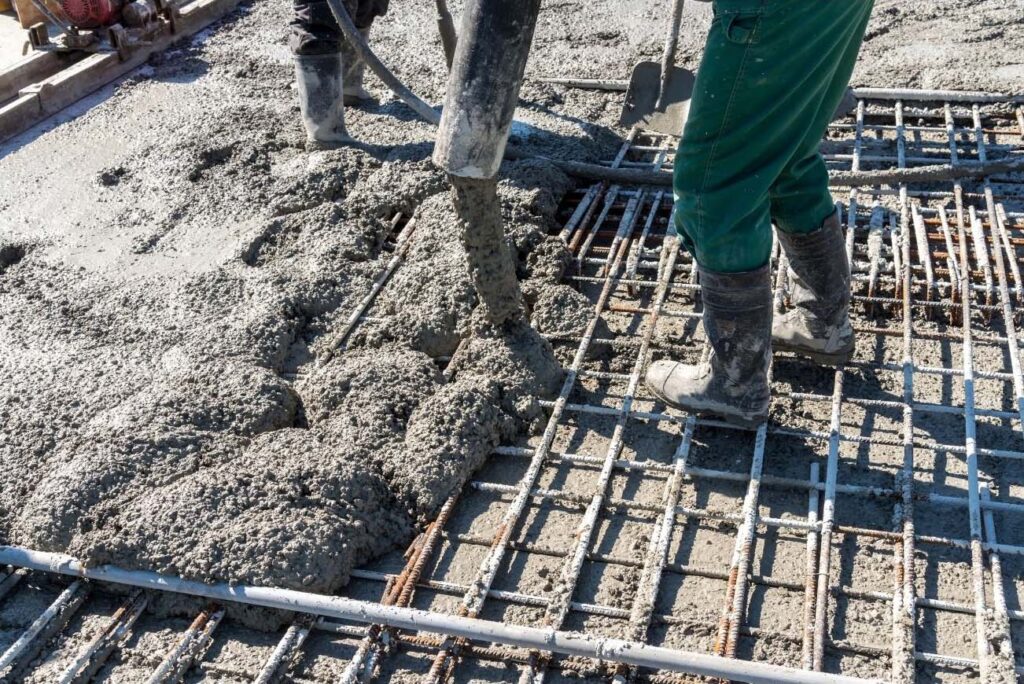Concrete offers a multitude of advantages when it comes to crafting structures capable of withstanding the most formidable disasters, such as floods, hurricanes, earthquakes, and other destructive forces. While other materials, like wood, can easily succumb to these calamities, modern commercial concrete experts possess the knowledge and skills to create concrete slab foundations, roof slabs, structural walls, and more that can endure even the harshest conditions.
Concrete Masonry: A Superior Building Material

In response to the question, “Is Concrete Masonry a Good Building Material?” the resounding answer is “yes.” Concrete is among the most durable and esteemed building materials for both residential and commercial applications worldwide. Structural concrete elements form the backbone of countless buildings, from foundations and walls to supporting pillars and roofs. Notably, it is highly recommended for areas prone to frequent disasters, such as severe storms.
Concrete masonry units (CMUs), often in the form of blocks resembling common cinderblocks, are made of concrete mixed with gravel or aggregate. They offer a blend of functionality and aesthetics, featuring smooth, rough, or grooved surfaces. While some argue in favor of solid slabs of reinforced poured concrete as inherently stronger, masonry remains a viable choice for foundations, walls, and more.
In regions susceptible to tornadoes or hurricanes, meteorologists frequently advise seeking shelter within reinforced concrete structures, emphasizing their safety in comparison to other options.
What Kinds of Disasters Must Buildings Withstand?
Concrete solutions must withstand a range of weather conditions, geological factors such as erosion, and long-term wear and tear. In areas prone to natural disasters, the material must be prepared to endure even more severe conditions:
 Extreme Wind Events: Tornadoes and hurricanes, known for their extreme wind gusts and high sustained wind speeds, pose significant threats. However, even regular summer storms and severe blizzards can cause damage through airflow and windborne debris.
Extreme Wind Events: Tornadoes and hurricanes, known for their extreme wind gusts and high sustained wind speeds, pose significant threats. However, even regular summer storms and severe blizzards can cause damage through airflow and windborne debris.
 Rain, Snow, and Ice: Water damage gradually affects all structures. Any cracks or faults in the material can permit moisture to infiltrate, leading to more extensive issues like mold growth and rot. Concrete masonry excels in withstanding heavy snowfall, ice buildup, and torrential rain.#2
Rain, Snow, and Ice: Water damage gradually affects all structures. Any cracks or faults in the material can permit moisture to infiltrate, leading to more extensive issues like mold growth and rot. Concrete masonry excels in withstanding heavy snowfall, ice buildup, and torrential rain.#2
 Flooding: Standing water, a common aftermath of extreme thunderstorms and wind events near shorelines, presents a substantial challenge. Concrete masonry units offer exceptional water resistance and can withstand relatively severe flooding, though their performance depends on the specific type of flood.
Flooding: Standing water, a common aftermath of extreme thunderstorms and wind events near shorelines, presents a substantial challenge. Concrete masonry units offer exceptional water resistance and can withstand relatively severe flooding, though their performance depends on the specific type of flood.
While these disasters result in staggering annual damages, even more common occurrences, such as thunderstorms with high winds or recurring snowfall and sleet, contribute to structural problems, generating significant expenses for property owners.
Resiliency Is the Key to Concrete Structure Longevity

Concrete comes in various strength grades, determined by compression, flexion, and tensile strength tests. When the appropriate category of concrete masonry units is selected for a particular project, they exhibit remarkable resilience. In fact, poured, pre-cast, formed, and CMUs surpass insulated panels and wood in all disaster categories: storms, wind, floods, fires, and resistance to mold and pests.
Masonry concrete structures provide numerous benefits in disaster-resilient construction. The insights presented above underscore the suitability of various concrete structural elements for residential, commercial, and industrial applications. With centuries of advancements in resilient concrete technology, this versatile material stands as an intelligent choice for locations vulnerable to severe storms, earthquakes, and unpredictable forces.
For further insights into concrete structures and their pivotal role in disaster resilience, we encourage you to reach out to concrete experts like TG Basile. Our team is dedicated to guiding you towards structures that can endure the test of time and weather.





